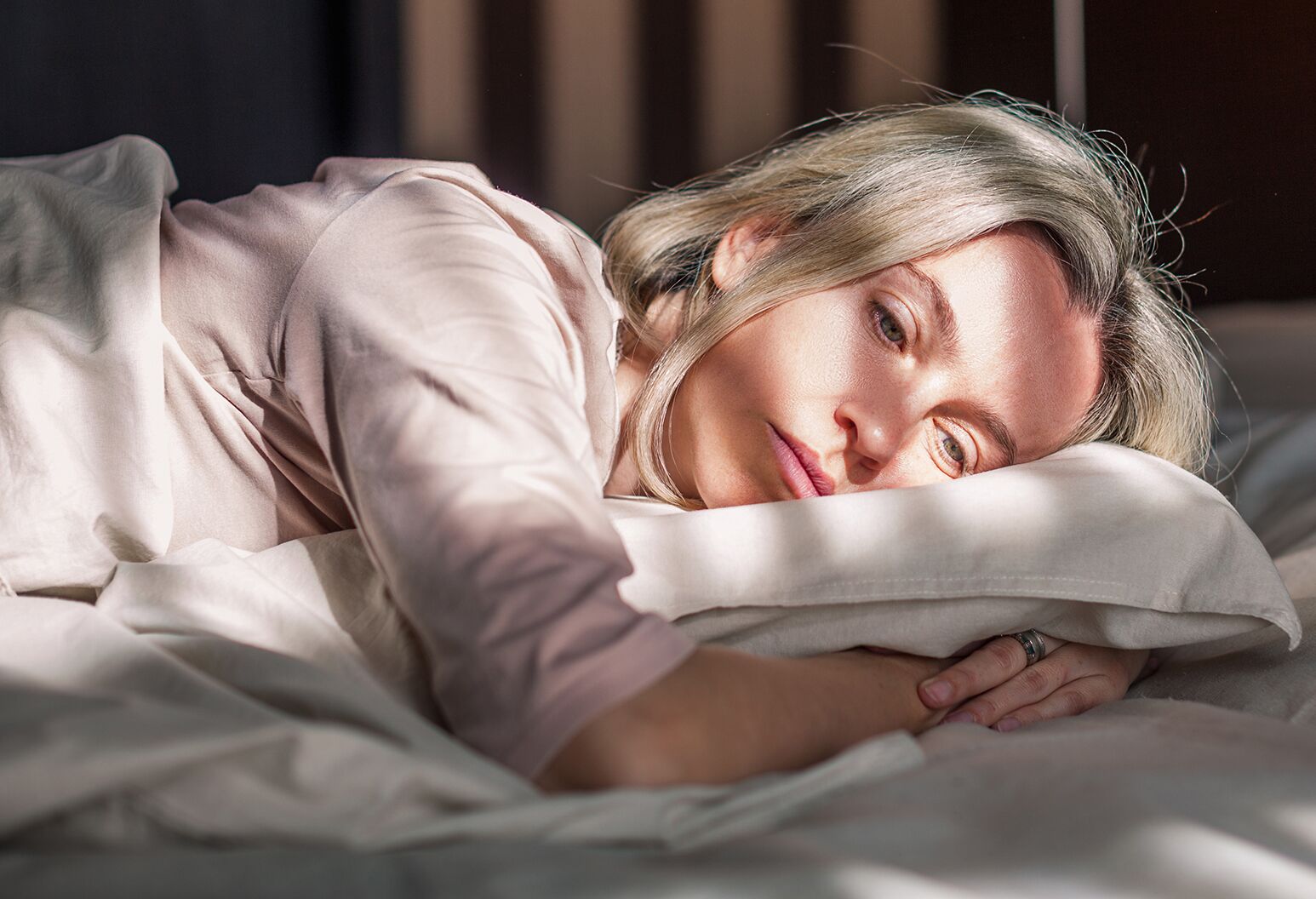women's health
What Is Perimenopause?

A sleep psychologist shares strategies for getting enough sleep, even if hormonal changes seem ready to disrupt it.
3 min read
Among the annoyances that come with menopause, perhaps one of the more frustrating symptoms is sleep disturbance. In fact, frequent awakenings are the most common complaint during this transition, with 40%–60% of women reporting sleep issues in the time leading up to (perimenopause) and during menopause—nearly double the rate seen in premenopausal women.
These sleep disturbances are often associated with hot flashes and hormonal changes. But you don’t have to just accept it as an inevitable part of this time in your life. As a sleep specialist, I have tools that can help you reclaim a more restful night of sleep.
The hormonal rollercoaster of menopause—particularly the decline in estrogen and progesterone—can significantly impact your sleep quality. Estrogen plays a role in regulating the body's temperature, so when its levels drop, it can lead to those nighttime sweats. In addition, estrogen is involved in the metabolism of serotonin, a neurotransmitter that influences sleep, as well as melatonin production, which regulates our sleep cycle. The decrease in estrogen can lead to a drop in both, contributing to frequent wakings for menopausal women.
Meanwhile, progesterone is like a natural sedative and has a calming effect on the body, helping to promote sleep. As its levels decline, you might find yourself feeling more anxious or restless at night and have a harder time staying asleep.
By providing your email address, you agree to receive email communication from The Well.
While the changes in hormones are a natural part of this transition, there are strategies you can implement to help quell the sleep disturbances.
Create a sleep-conducive environment. Keep your bedroom cool to reduce the chances of waking up from a hot flash. Consider using breathable bedding and moisture-wicking sleepwear to stay comfortable throughout the night.
Establish a relaxing bedtime routine. A consistent, calming pre-sleep routine can signal to your body that it's time to wind down. This might include activities like reading, taking a warm bath, or practicing mindfulness meditation. Avoid screens and stimulating activities before bed which can detract from sleep mode.
Consider hormone replacement therapy (HRT). HRT can help alleviate some of the symptoms of menopause, including hot flashes and sleep disturbances. It's important to discuss this option with your health care provider to understand the risks and benefits and determine if it's a suitable option for you.
Stay active. Regular physical activity can help regulate your sleep patterns and reduce stress, which can contribute to better sleep. Just be mindful to avoid vigorous exercise too close to bedtime, as it can have a stimulating effect.
Limit caffeine and alcohol. Both caffeine and alcohol can interfere with sleep, so it's best to limit their consumption, especially in the hours leading up to bedtime. Caffeine can keep you awake, while alcohol, although it might initially make you feel sleepy, can disrupt the quality of your sleep later in the night.
Seek professional support. If sleep disturbances are significantly impacting your quality of life, it may be helpful to speak with a sleep specialist. cognitive behavioral therapy for insomnia (CBTi) is an effective treatment that can help you develop healthy sleep habits and manage the anxiety that can accompany sleep issues.
Menopause is a significant time in a woman’s life, and it brings its fair share of challenges. Hopefully with these tips, your sleep won’t continue to suffer.
The Well is Northwell Health’s commitment to the future of health care. In this time of information overabundance, much of which is inaccurate, unhelpful, or even difficult to understand, Northwell Health is on a mission to make a difference as an honest, trusted, and caring partner. The site connects with consumers to provide them with personalized content that reduces their stress, makes them laugh, and ultimately feel more confident and capable on their healthcare journey.